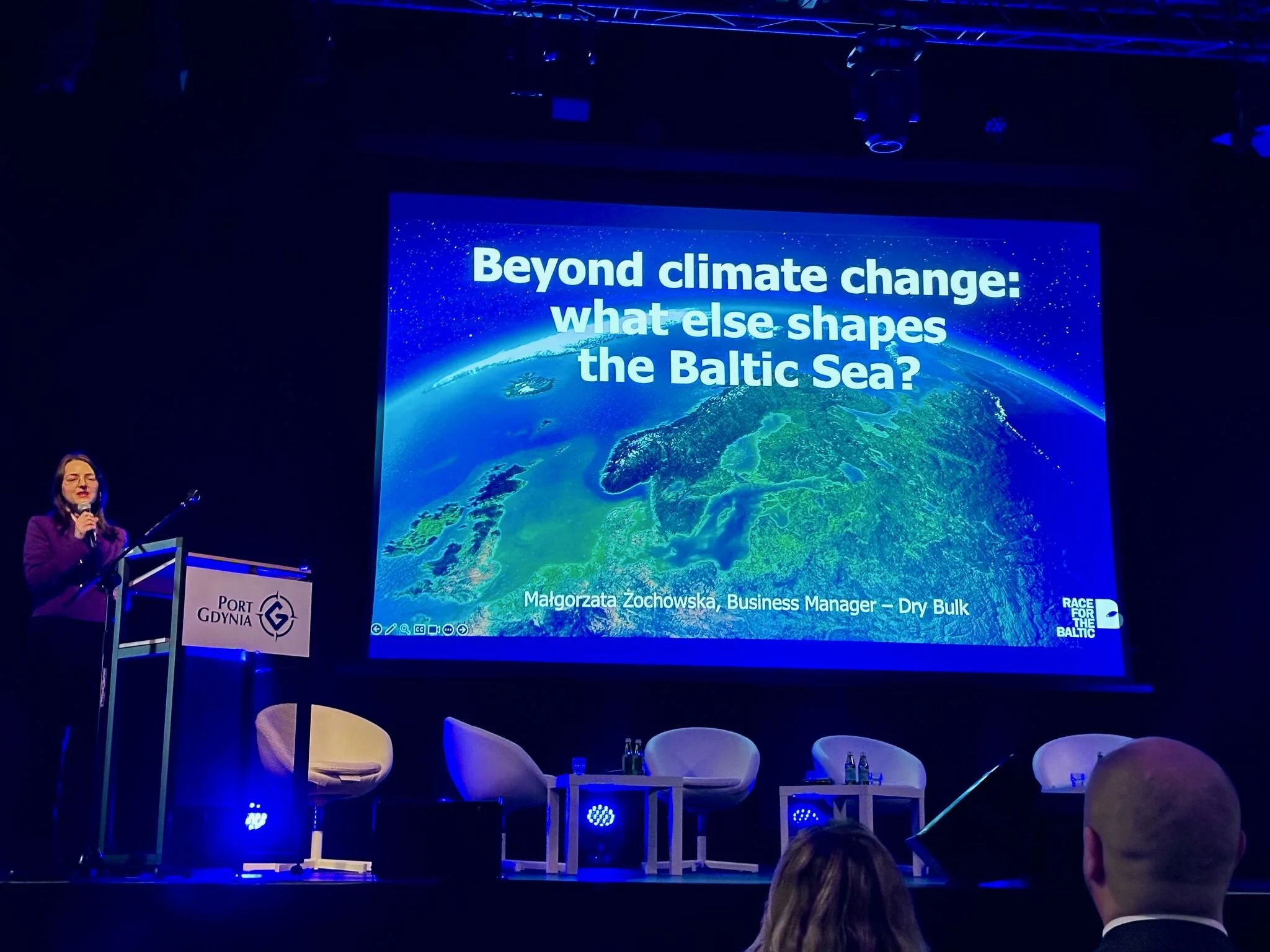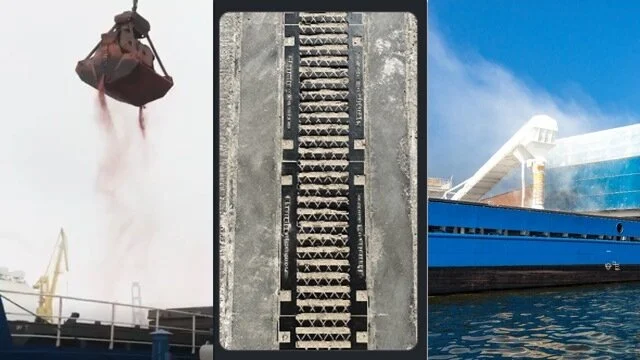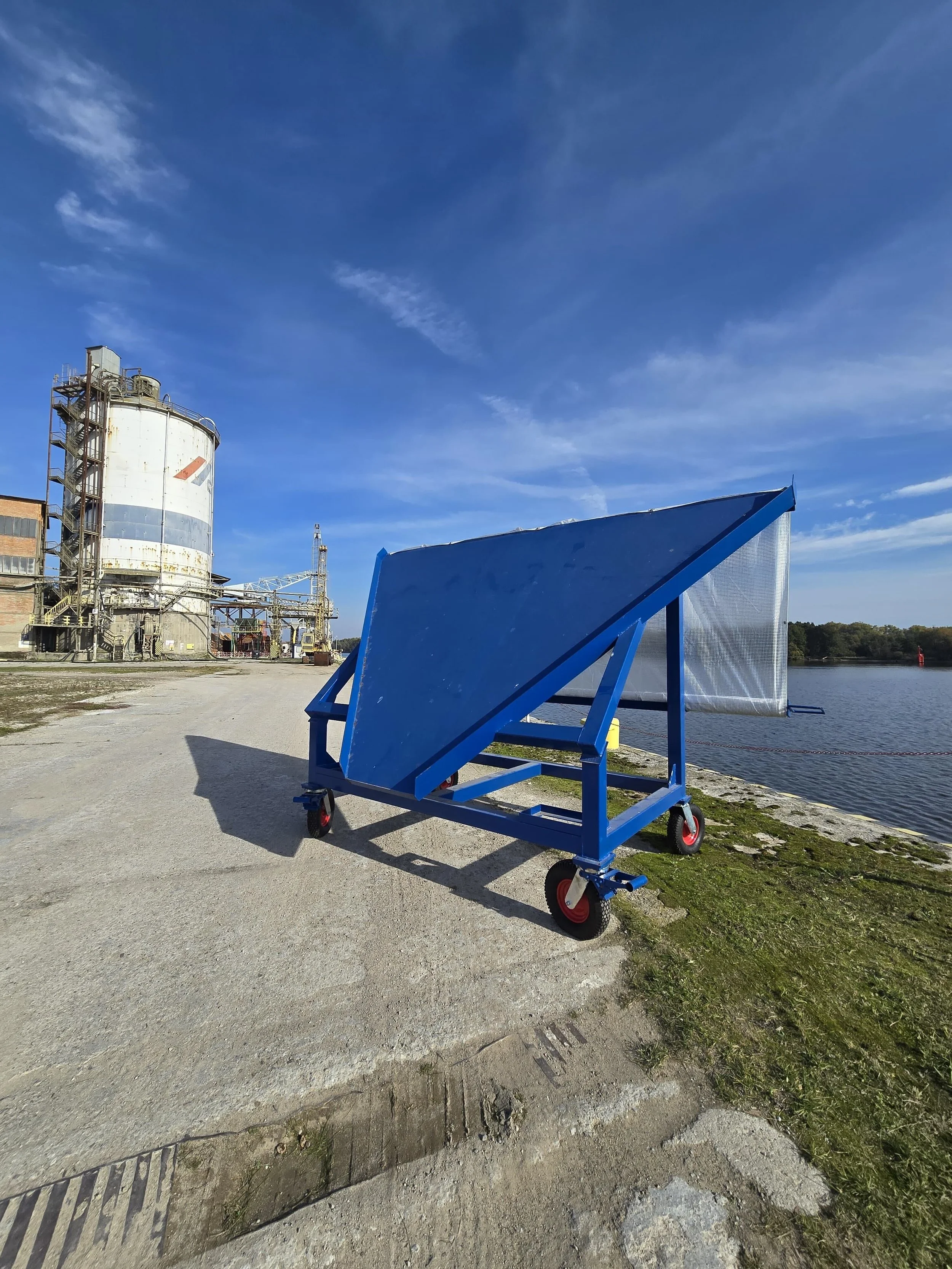Dry Bulk: when grain becomes a problem
The first quarter of 2025 was marked by intensive planning for the Dry Bulk project. We began by mapping Baltic terminals handling agricultural products, followed by visits to Gdańsk and Gdynia to discuss grain-related eutrophication risks and explore eco-friendly technologies. Collaboration talks with ports are underway, with more terminal visits set for April. In March, our project manager joined the INCONE60 Green team to discuss Elbląg’s development within the PortShaz project. We also deepened stakeholder dialogue with NGOs and local governments on dry bulk leakage impacts. Next up: a key work package meeting in Klaipeda in May.
Dry Bulk: Kickoff and prevention covers in place
The PortSHAZ project's kickoff with project partners, including Port of Elbląg, K2 Solutions, Ptpi, and the Institute for Sustainable Economy and Logistics, took place in Q4. The team planned upcoming activities and conducted a study visit to the Vistula Spit. In November, the first work package activity, "EcoPort," was approved, highlighting frameworks and tools for dry bulk handling in Baltic ports. Q4 also saw the re-design and successful presentation of the Catalogue of Best Practices at the BPO Ports for Climate Conference in Tallinn, generating strong interest. Additionally, prevention covers were installed at Fabryka Zieleni and the Port of Gdańsk, advancing efforts to protect the Baltic Sea, with more covers set to be in place in Q1.
Final Stages of the Port Project and the Launch of the Dry Bulk Project
In Q3, we finalised the Port project. As the one of the last activities we ensured that some of Poland’s largest ports implemented our Catalogue of Best Practices and Technologies for Handling Dry Bulk Fertilizer into their port guidelines. Also, finally, our prevention covers in West Pomerania have started to be produced. As the Port project ended, we started our new project “Dry Bulk” in July. This project will focus on reducing the leakage of other phosphorus rich dry bulk materials such as seed, fodder etc. The project is co-financed via the Interreg South Baltic Programme ("PortSHAZ")." In line with this new project, we made visits to a few Baltic dry bulk terminals and attended the Baltic Port Organization Conference in Klaipeda.






